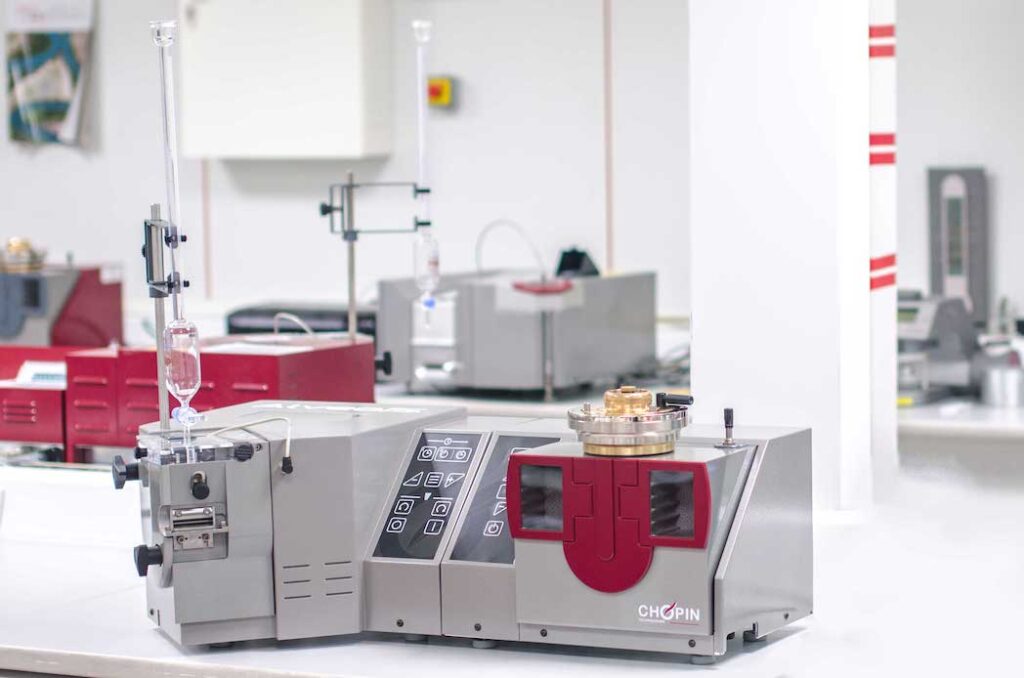Alveograph Test Series: The Essential CHOPIN Technology for Bakers and Millers
The Alveograph Test Series by CHOPIN Technologies is the industry-standard tool for measuring the rheological properties of dough, including tenacity, elasticity, and baking strength. This valuable data enables millers and bakers to accurately predict and optimize flour and wheat performance for various applications, such as baked goods, pasta, and biscuits. This analysis tool ensures that bakers maintain consistent product quality by providing comprehensive insights into dough behavior throughout the baking process.
How the Alveograph® Test Series Works
The Alveograph performs an extensive analysis in which a dough sample is formed and inflated until it bursts, simulating gas development during fermentation. This process measures four essential parameters:
- Tenacity: The dough’s resistance to deformation.
- Elasticity: The dough’s ability to spring back.
- Extensibility: How far the dough can stretch without breaking.
- Baking Strength: The total energy required to deform the dough.
These insights are invaluable for quality control and recipe development. With the Alveograph, millers can determine the ideal wheat-to-flour ratios, and bakers can monitor ingredient quality, ensuring product consistency.
Applications and Benefits of the Alveograph® Test Series
The Alveograph® is recognized worldwide as a reference tool for assessing grain and flour quality. It assists in selecting the right wheat for baked goods, adjusting gluten levels, and testing ingredients such as enzymes and yeasts. Meeting international standards like AACC and ISO, the Alveograph is a reliable choice for any bakery or milling facility.
With the Alveograph Test Series, baking professionals can make data-driven decisions that ensure superior product quality. Whether optimizing flour blends or creating new recipes, the Alveograph® Series remains an indispensable tool for bakers and millers globally.

